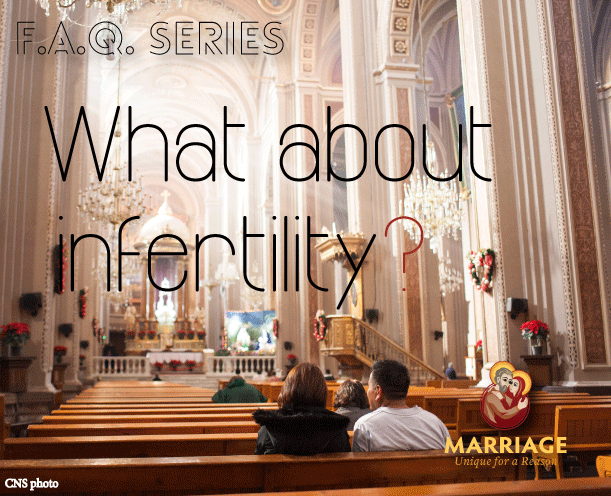 In this fourth of the 5-week series, MUR is going over the FAQ #3 in Section 2: What’s the difference between a husband and wife who can’t have children, and two persons of the same sex, who also can’t have children?
In this fourth of the 5-week series, MUR is going over the FAQ #3 in Section 2: What’s the difference between a husband and wife who can’t have children, and two persons of the same sex, who also can’t have children?
This is a great question and one that requires a bit of patience to find a satisfying answer. The soundbite answer is: A man and a woman, united in the sexual act, is always and only the type of act that can result in the conception of a child.
As the MUR FAQ puts it, even when a husband and wife do not in fact conceive a child (due to infertility, age, and so on), their sexual acts are still the kind of acts by which children are naturally conceived. In contrast, two persons of the same sex may be perfectly healthy, but will never be able to enter a one-flesh communion and thus unite in such a way that a child is conceived.
On the human level, the marriage between a man and a woman, regardless of whether they have children, is deeply affected by the relationship of each of them has to their parents. You see, every child has a mother and a father, and then grows up, and to some extent bases his (or her) understanding of marriage and relationships on what he saw between his own parents.
Let’s flip the question around a bit: if marriage is supposedly about children, then why allow couples who cannot procreate to be married?
Well, first of all, we never said that marriage is only about children. We’ll come back to that later.
Setting aside the privacy issues and the horrifying idea of the government being allowed to peek into health records before issuing marriage licenses, hopefully the answer is still pretty clear: because a man and woman, no matter what, can share the whole of their lives with each other, uniting bodies, hearts, minds and souls. The community benefits from every witness of fidelity and love between a husband and a wife. Children in their extended families and neighborhoods can see in them a picture of love, of what is possible, even if their own parents are not together. They may choose to open their marriage to children through adoption, foster care, or other more temporary arrangements, or they may choose to serve in any number of different ways. They are still complements to one another.
A quick philosophy lesson before the next question: An accident means a trait or a quality that something has, that is not always or necessarily there. For example, color is often an accident; an apple doesn’t have to be red to be an apple. The essence, on the other hand, is what makes something be what it is. It’s not an apple if it’s a pear, even if the pear is red.
So here’s the question: Is the impossibility of conceiving a child an accident in the couple, or connected essentially to their relationship?
A man and a man, or a woman and a woman, cannot become parents together, by definition, by essence. Their infertility is a result of the nature of human beings, not to an accident of infertility in one or the other (or both).
Does that help?
Leave a Reply